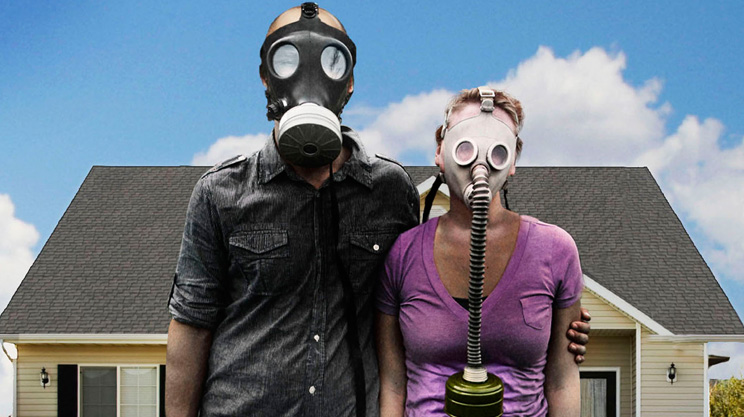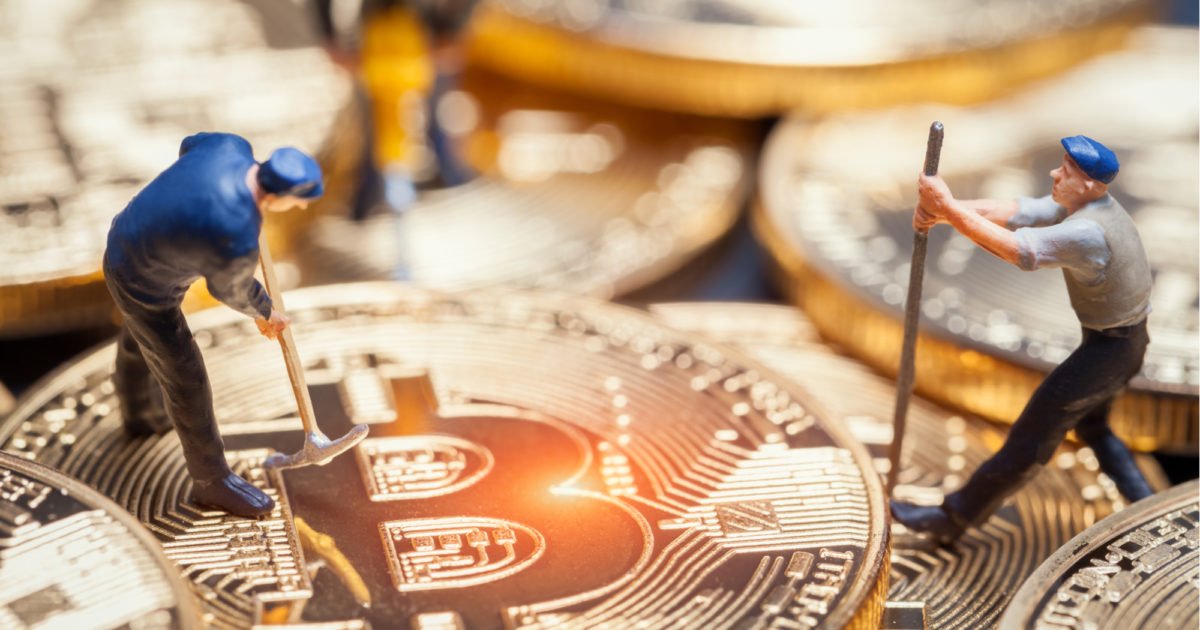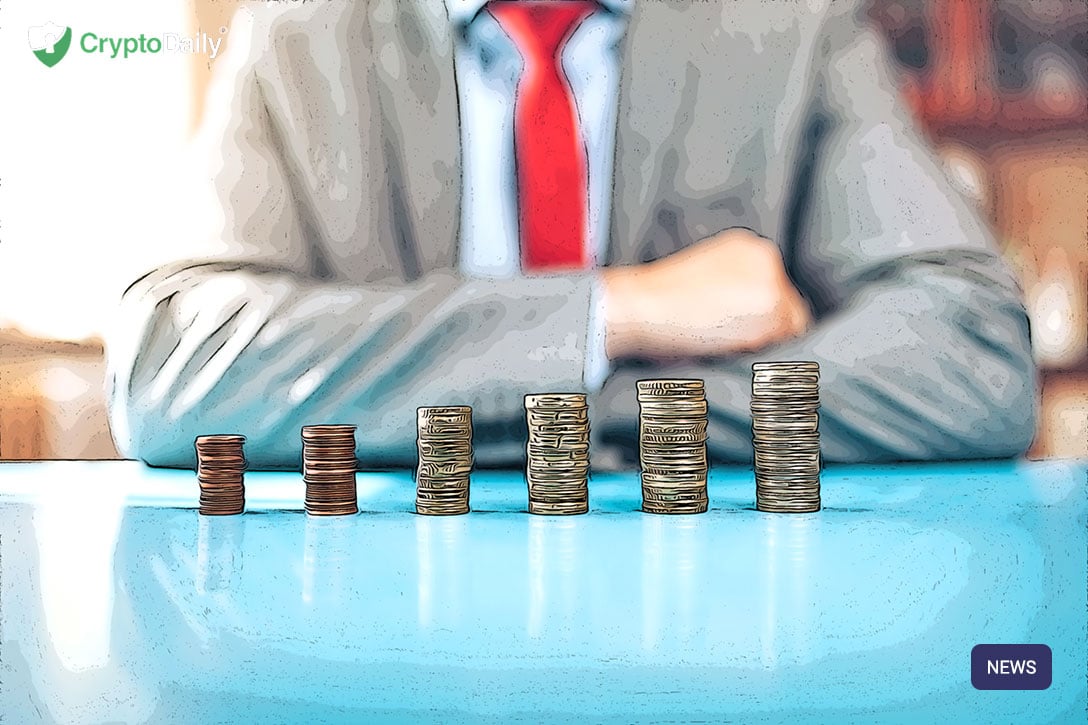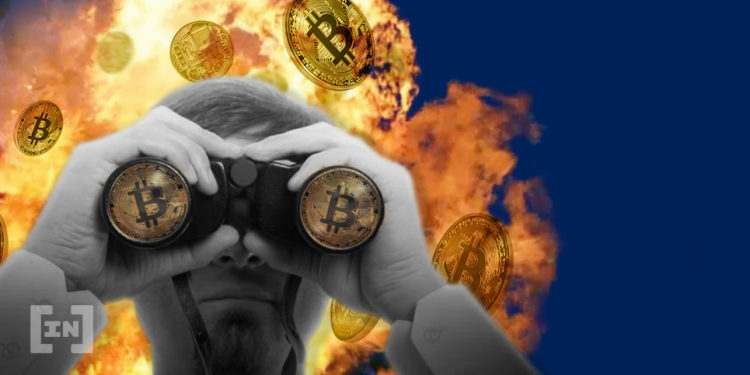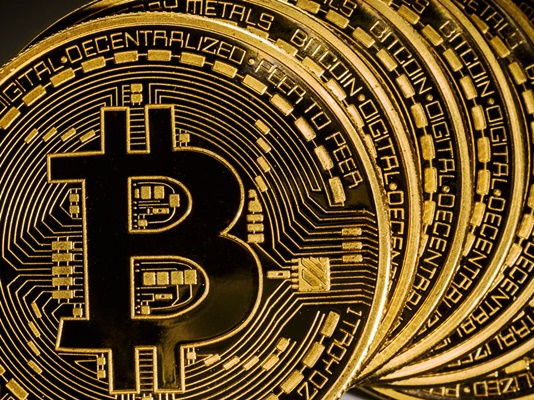“Not too long ago, people in the prepper community were actively warning against crypto, and now they’re all investing in it…As long as the grid stays up, people will keep using bitcoin.”
The gold versus Bitcoin debate is complex, nuanced and still in its embryonic stages when put into the perspective of gold’s known 2,700-year use as money versus Bitcoin’s very modest eight-year track record.
From a pure investment perspective, as the following Bloomberg chart shows, Bitcoin has obviously “wiped the floor” with its esteemed rival and, no doubt, has absorbed a considerable volume of funds that otherwise might have found their way into gold investments.
One subset of gold investors, which is both over-stated and over-ridiculed in the mainstream media, is the “preppers”, or those preparing for a catastrophic disaster to occur in the future by stockpiling food, ammunition and “durable” methods of storing their wealth, etc. We clarify the term “preppers” because it is not common parlance in many European countries. While some allocation in gold was basically “de rigeur” some years ago, the prepping community is increasingly turning to Bitcoin, as Bloomberg reports.
Wendy McElroy is ready for most doomsday scenarios: a one-year supply of nonperishable food is stacked in a cellar at her farm in rural Ontario. Her blueprint for survival also depends upon working internet: part of her money, assuming she needs some after civilization collapses, is in bitcoin. Across the North American countryside, preppers like McElroy are storing more and more of their wealth in invisible wallets in cyberspace instead of stockpiling gold bars and coins in their bunkers and basement safes. They won’t be able to access their virtual cash the moment a catastrophe knocks out the power grid or the web, but that hasn’t dissuaded them. Even staunch survivalists are convinced bitcoin will endure economic collapse, global pandemic, climate change catastrophes and nuclear war.
“I consider bitcoin to be a currency on the same level as gold,” McElroy, who lives on the farm with her husband, said by email. “It allows individuals to become self-bankers. When I fully understood the concepts and their significance, bitcoin became a fascination.”
Wendy McElroy’s profile, for what it’s worth, is not exactly that of a “whacko” prepper. A former journalist with FOX News, McElroy might be described as an “anarcho-capitalist”. She has authored a dozen books and numerous articles on subjects such as voluntarism (all forms of human association should be voluntary), feminism, how pornography can benefit women, capitalism and defending Wikileaks. In an article “Would Bitcoin ‘Function’ in a Societal Collapse?” on bitcoin.com, McElroy cited the growth in Bitcoin adoption in the midst of the collapse of Venezuela’s economy and its currency.
Bloomberg continues by noting the seeming contradiction for preppers, like McElroy, since a collapse in the grid would take the internet down. However, it’s the ability of Bitcoin to operate beyond the control of central bankers (so far) which is a key attraction.
At first glance, it seems counter-intuitive that some of bitcoin’s most ardent proponents are people motivated by the belief that public infrastructure will collapse in times of social and political distress. Bitcoin isn’t yet widely accepted as a method of payment and steep transaction costs make it inconvenient to use at vendors that do take it. Preppers, as it happens, have a different perspective on what they see as the money of the future, which has surged 10-fold in the past 12 months as supporters lauded it as a digital alternative to rival the dollar, euro or yen. Used to send and receive payments online, bitcoin is similar to payment networks like PayPal or Mastercard, the difference being that it runs on a decentralized network—blockchain—that’s beyond the control of central banks and regulators. It was born out of an anti-establishment vision of a government-free society, a key attraction for those seeking unhindered access to their capital in case a massive shock shuts down the banking system.
Even if the grid went down temporarily, preppers are attracted by the blockchain’s record of Bitcoin holdings and transaction.
“Not too long ago, people in the prepper community were actively warning against crypto, and now they’re all investing in it,” said Tom Martin, a truck driver from Washington who runs a social-media website for people interested in learning skills to survive disaster.
“As long as the grid stays up, people will keep using bitcoin.”
In addition to gold, silver and stocks, Martin invests in bitcoin and peers litecoin and steem because they’re easier to travel with, harder to steal and offer better protection in the event of the kind of societal breakdown that would unfold if a fiat currency like the dollar collapsed. He’s among those confident that bitcoin can withstand even a complete blackout through the strength of the underlying blockchain, the anonymous public bookkeeping technology that records every single bitcoin transaction.
In the bitcoin.com article, Wendy McElroy noted the increasing dependence on blockchain and the internet, the revival of which would be a priority after a disaster.
Yes. Electricity and the internet may be less reliable or more expensive but they would be available. An increasing dependence on the blockchain would make it a top economic priority. It would also be a top military priority. In October 2016, the Pentagon revealed it was actively exploring blockchain technology “to create tamper-proof military computer systems, including those used to control America’s nuclear weapons.” Other nations are undoubtedly doing the same.
Bloomberg acknowledges this view.
Preppers, though, stock enough food and supplies to sustain them for months, if not years, and they expect whatever governing structure emerges post-calamity will prioritize getting the web back up and running.
“It may be difficult, if not impossible to access for a while, but once things start returning to some level of normality, then the blockchain will return as it was before the disaster,” said Rob Harvey, a bitcoin investor who prepares for natural and nuclear catastrophes by learning and teaching survival skills, like making a fire. “The blockchain does not need a specific place or a specific person to survive—that’s a strong survival tactic”.
Source/More: Doomsday Preppers Are Switching Allegiance From Gold To Bitcoin | Zero Hedge

